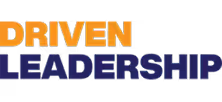Leadership Training Courses in Anaheim, CA


Leadership Training Courses in Anaheim, CA
Strong leadership is the difference between teams that survive and teams that outperform expectations. Our leadership training courses in Anaheim, CA are designed for leaders who need immediate, practical skills that translate to measurable results in hospitality, corporate, nonprofit, and athletic settings common to Orange County. These programs prioritize experiential learning, clear behavior change, and durable systems for execution so participants leave able to lead with clarity, accountability, and influence.
Who these courses are for
- Emerging leaders — individual contributors moving into first-time supervisor roles who need foundational tools for feedback, delegation, and time management.
- Mid-level managers — managers accountable for cross-functional results who need skills for coaching, conflict resolution, and performance systems.
- Senior leaders and executives — leaders focused on strategy implementation, culture, and scaling teams.
- Teams and departments — intact teams that need alignment around execution, roles, and meeting rhythms.
- University athletics and coaches — sport-focused leadership training that develops resilience, team cohesion, and game-time decision making.
Course types and what each delivers
- Leadership Foundations (1 day)
Objectives: Build self-awareness, foundational communication skills, and a simple framework for delegation.
Activities: Self-assessments, short simulations, peer feedback, and an individual 30-day action plan. - BOLD: Advanced Leadership (3 days, immersive)
Objectives: Raise strategic clarity, influence, and stakeholder alignment to lead larger teams and cross-functional initiatives.
Activities: Scenario-based exercises, real-time problem solving, role-play with executive feedback, and leadership storytelling labs. - The Forge: Team Execution (2 days)
Objectives: Move teams from ideas to consistent results through clarified roles, cadence, and scorecards.
Activities: Team diagnostics, RACI workshops, creation of team scorecards, conflict simulations, and live planning sessions. - Personal Mastery: Breaking Through Self-Sabotage (virtual)
Objectives: Improve resilience, decision hygiene, and focus by addressing limiting habits and thought patterns.
Activities: Guided reflection, cognitive frameworks, accountability partnerships, and micro-practice assignments. - TKI Conflict Training (half day to 1 day)
Objectives: Increase team capacity to navigate conflict productively using proven conflict modes and debrief frameworks.
Activities: Applied conflict scenarios, practice scripts, and communication toolkits. - Summit Online Academy modules
Objectives: Ongoing refreshers and microlearning for reinforcement and scalability across distributed teams.
Activities: Short video lessons, worksheets, and cohort-led discussions.
Course objectives and measurable outcomes
Each course is built around specific, measurable objectives:
- Improve direct-report engagement and retention metrics within 3 to 6 months.
- Increase team execution rate on quarterly priorities by clarifying accountability and rhythm.
- Reduce recurring conflict incidents by teaching structured debrief methods and communication norms.
- Strengthen leader confidence in difficult conversations, measured through pre and post self-assessments.
Programs include pre-course diagnostics and post-course follow-up to capture baseline and outcome data that ties training to organizational KPIs.
Learning activities and methodology
Instruction is experiential and process-based rather than purely theoretical. Typical elements:
- Pre-work assessments (360 feedback, personality and behavior inventories) to surface strengths and gaps.
- Immersive simulations that replicate Anaheim workplace scenarios such as high-turnover hospitality shifts, event-driven stress, and cross-department coordination during peak seasons.
- Facilitated group practice with real-time coaching and behavior-specific feedback.
- Team-based projects that produce immediate artifacts: leadership playbooks, team scorecards, and one-page execution plans.
- Post-program reinforcement through microlearning, manager coaching sessions, and measurement checkpoints.
Facilitator profiles
Facilitators are experienced practitioners who combine executive leadership experience with adult learning expertise. Typical facilitator profile:
- 10 to 20+ years leading teams in private and public sectors, including hospitality, nonprofit, or athletics.
- Trained in experiential facilitation, conflict resolution methodologies, and business coaching.
- Skilled at translating assessment data into clear developmental roadmaps for individuals and teams.
Facilitators adapt examples and practice scenarios to Anaheim contexts such as seasonal staffing surges, multicultural teams, and the operational pressures of tourism-driven businesses.
Certification and credits
Courses provide a completion certificate documenting contact hours and competencies covered. For organizations that require continuing education recognition, some programs can be aligned to professional development plans or internal credit systems. Custom accreditation or continuing education units can be discussed as part of program scoping.
Typical course flow (diagnosis to sustainment)
- Needs assessment and baseline metrics (surveys, stakeholder interviews).
- Pre-work and assessments provided to participants.
- Immersive course delivery with targeted practice cycles.
- Action planning: individual and team implementation commitments.
- Post-course reinforcement: coaching, microlearning, and 30/60/90 day check-ins.
- Measurement and iteration tied to organizational KPIs.
Common leadership challenges we address in Anaheim
- High employee churn in hospitality and service sectors that undermines continuity.
- Cross-shift and cross-department communication gaps during high-volume events.
- Cultural and language diversity requiring inclusive leadership practices.
- Executive-level alignment problems as companies scale in Orange County and Los Angeles-adjacent markets.
Training modules are adapted to these local realities so leaders practice solutions they will actually use on the job.
Outcomes businesses can expect
- Clearer accountability and faster decision making across teams.
- Improved team engagement and lower voluntary turnover among frontline supervisors.
- Stronger conflict resilience and fewer recurring escalations.
- Better execution on priorities measured through team scorecards and reduced variation in performance across shifts.
Ongoing development and maintenance
Leadership growth is iterative. Recommended sustainment practices:
- Quarterly refreshers and advanced modules for ongoing growth.
- Short cohort-based microlearning to reinforce new behaviors.
- Manager coaching to ensure skills are applied and sustained in weekly operations.
- Periodic reassessment to track progress and refine development plans.
These courses are built to deliver durable capability, not one-time inspiration. By focusing on practiced behaviors, local context, and measurable outcomes, leadership training in Anaheim becomes an engine for stronger teams, better service, and consistent execution.

